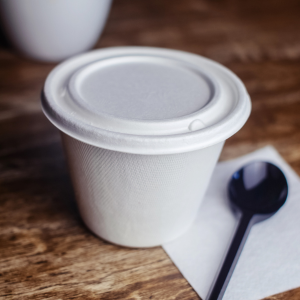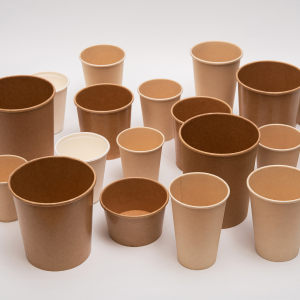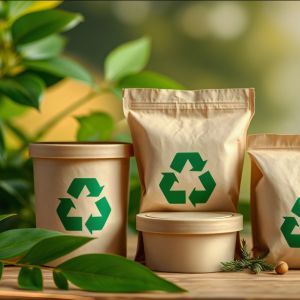What Is Sugarcane Packaging and Why It’s a Game-Changer for NZ Food Businesses
With the pressure to reduce plastic waste and meet eco-conscious customer demands, food service businesses in New Zealand are turning to sugarcane packaging as a sustainable alternative. But what is it exactly—and why is it considered a game-changer for commercial operations?
This blog explains what sugarcane packaging is, how it’s made, and why your restaurant, café, food truck, or catering business should consider making the switch.
What Is Sugarcane Packaging?
Sugarcane packaging is made from bagasse, the dry fibrous pulp left over after juice extraction in sugarcane processing. Instead of burning or discarding this by-product, it’s moulded into various packaging formats including:
-
Takeaway containers
-
Plates and bowls
-
Food trays and clamshells
-
Lids and cups
Because bagasse is a natural, renewable material, the final products are biodegradable and compostable—making sugarcane packaging an ideal replacement for plastic and polystyrene.
Why Sugarcane Packaging Is a Game-Changer for NZ Food Businesses
1. Certified Compostable and Eco-Friendly
Most sugarcane products meet global compostability standards (e.g., AS4736, EN13432) and break down naturally in industrial composting systems.
In NZ, many councils accept certified compostable packaging in commercial green waste collection, helping your business lower landfill contributions.
2. Supports NZ Sustainability Goals
Sugarcane packaging aligns with the New Zealand government’s Waste Minimisation Act and local council initiatives targeting zero waste and plastic-free operations.
This makes it a smart choice for:
-
Schools and early childhood centres
-
Corporate catering
-
Events and festivals
-
Eco-conscious hospitality brands
3. Performs Like Plastic – Without the Downsides
-
Heat-resistant: Suitable for hot, greasy, and wet foods
-
Rigid and durable for transport and stacking
Unlike paper-based packaging, sugarcane containers hold their shape and do not leak with hot or oily food.
4. Enhances Brand Image and Customer Trust
Consumers are increasingly aware of their environmental impact. Using compostable sugarcane packaging signals your business values:
-
Sustainability
-
Clean, ethical sourcing
-
Reduction in single-use plastics
This can directly influence customer loyalty and word-of-mouth recommendations.
5. Made from Waste – Not Trees
Bagasse is a waste by-product that would otherwise be discarded. This gives sugarcane packaging a lower carbon footprint compared to virgin paper or plastic alternatives.
Common Sugarcane Packaging Products Available in NZ
Product Type |
Best Use |
|
Clamshell containers |
Burgers, hot meals, fried foods |
|
Plates and bowls |
Dine-in, events, catering |
|
Snack trays |
School lunches, street food |
|
Portion cups & lids |
Sauces, dips, condiments |
All of these can be composted in suitable environments and often come with matching compostable lids.
FAQ – Sugarcane Packaging for NZ Businesses
Is sugarcane packaging accepted in NZ commercial compost systems?
Yes, in many regions—especially when certified. Always check with your local council.
Can sugarcane containers go in the microwave?
Yes, most are microwave safe and can handle hot food without softening or warping.
Is sugarcane packaging waterproof?
It resists water and oil better than paper and holds up well to hot or greasy food.
How does it compare in cost to plastic?
Unit costs may be slightly higher, but environmental benefits, customer appeal, and regulatory alignment often outweigh the price difference.
Final Thoughts
Sugarcane packaging offers an effective, sustainable, and performance-ready alternative to traditional plastic and paper options. For NZ food businesses looking to reduce waste, support composting systems, and elevate their eco profile, it’s a smart switch that delivers both functional and marketing benefits.
At Insinc Products, we stock a full range of certified compostable sugarcane packaging suited to New Zealand’s commercial kitchens, caterers, and takeaway services. Contact us today to explore options for your business.
Posted: Thursday 18 September 2025



